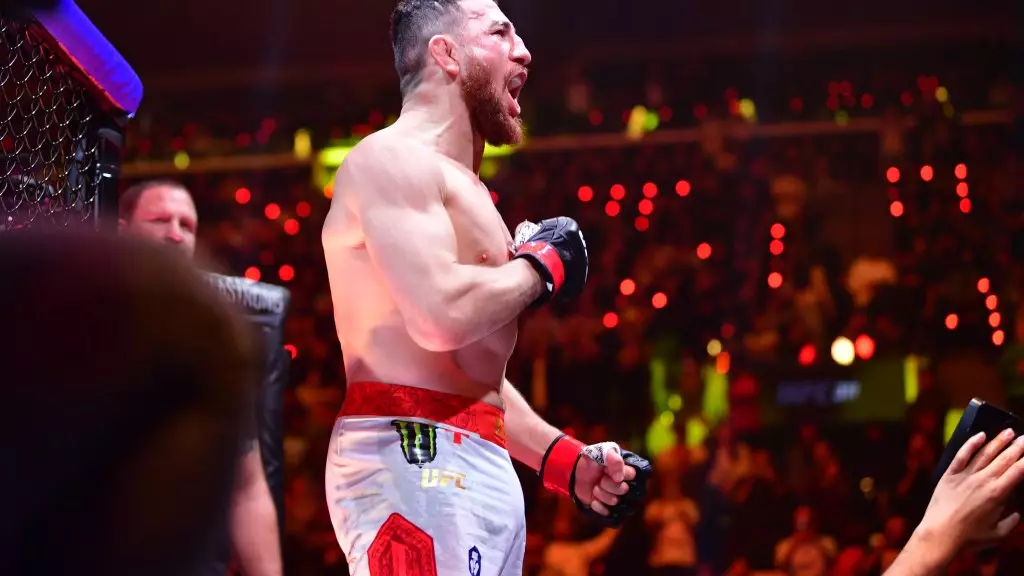Merab Dvalishvili’s ascent to the pinnacle of the UFC bantamweight division is a testament to his relentless pursuit of improvement and resilience. Overcoming significant challenges, he has crafted his journey into an undeniable narrative of triumph. With a professional MMA record of 19 wins and 4 losses, including an impressive 12-2 in the UFC, his trajectory to championship status has been anything but straightforward. Having faced a gauntlet of formidable opponents, Dvalishvili not only carved his name among the best but also showcased a unique evolution that has rendered him a fearsome competitor.
His ten-fight winning streak, featuring notable victories against recognized champions like Jose Aldo, Petr Yan, and Henry Cejudo, is more than just a number; it reflects the critical growth he achieved each time he stepped into the cage. Each bout was a lesson, a stepping stone that contributed to a refined skill set and an unshakeable confidence. It is this journey of enhancement — where every hardship became an opportunity — that Ray Longo, his coach, eloquently describes, coining Dvalishvili as a “monster” forged through relentless competition and self-correction.
In September, Dvalishvili’s efforts culminated in him dethroning Sean O’Malley to become the UFC bantamweight champion, a victory that solidified his place in MMA history. This achievement, however, did not afford him long moments of celebration. Instead, he faced the expectation of a quick title defense against Umar Nurmagomedov, an undefeated fighter with an impressive track record of his own. The stakes were phenomenally high at UFC 311, and the pressure was palpable. Yet, Dvalishvili emerged victorious yet again, claiming victory by unanimous decision, thus reinforcing both his standing and his reputation.
His relentless pursuit of excellence is further indicative of his character. As Longo noted, “Whatever doesn’t kill you makes you stronger,” a philosophy that Dvalishvili embodies completely. His ability to emerge victorious against opponents who were considered potential threats only further evidences his meteoric rise and unyielding spirit.
Further complicating the narrative is Dvalishvili’s relationship with UFC’s CEO, Dana White. Following the championship bout, White characterized their dynamic as “goofy,” highlighting the complexities within their interactions—indicating that while there have been moments of friction, there is also mutual respect present. It reveals the human aspect of professional sports, where relationships can often be multifaceted, mirroring the highs and lows that athletes experience within their careers.
This dynamic, while unique, underscores Dvalishvili’s determination to navigate the unpredictable waters of the UFC landscape. His gratitude towards the organization illustrates his awareness of the platform they provide for athletes, even amidst their complicated relations.
As we analyze Dvalishvili’s journey, it becomes clear that his remarkable path is characterized by hard-fought victories and invaluable lessons learned from each setback. As a champion, he not only wears the title but represents the embodiment of resilience in the face of adversity. Fans and analysts alike eagerly anticipate the next chapter in his evolving story, one that promises to be filled with the same grit and determination that has defined his career thus far. The future holds numerous possibilities, and with every fight, Dvalishvili solidifies his legacy as one of the sport’s most dedicated athletes.

